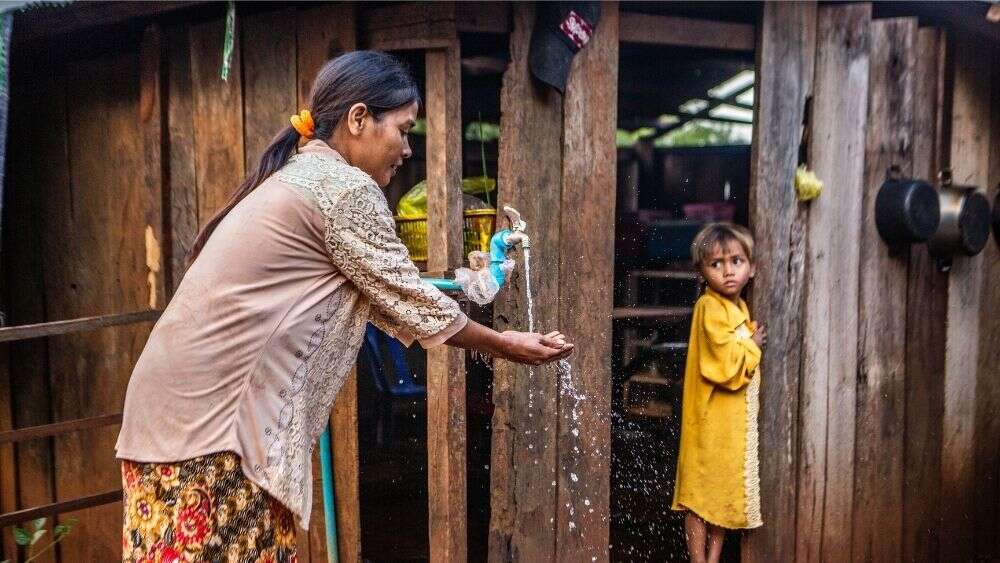Can you imagine walking for more than an hour to get clean water for your family? According to the World Health Organization, two-points billion people worldwide do not have clean water at the household level.
This is the harsh reality for many families living in impoverished parts of the world. Lack of access to clean water is much more than an inconvenience; it affects many vulnerable communities’ health, safety, education, and economic stability. Parents have limited access to work, children miss school due to illness caused by poor sanitation, and districts cannot break the cycle of poverty.
The Christian relief and development organization World Hope International (WHI) works with some of the most vulnerable and exploited communities in the world’s poorest regions. We take a holistic approach, integrating market-based solutions with public and private sector partners across multiple sectors, including agriculture, protection, water and sanitation, and education.
World Hope International in Cambodia
WHI has been working in Cambodia since 1998, implementing community-based programs in rural areas such as Mondulkiri Province.
Many of our activities are not unique. Still, the World Hope International 10-Steps to Community Driven Transformational Development model is innovative in linking these rural development programs to social enterprises, providing the community with revenue to support investment in education. , health, other social services, and nature conservation. This model has proved successful among indigenous and disenfranchised groups in Cambodia, including within the Bunong indigenous group in Mondulkiri province, where World Hope works with the local governance structure, the Indigenous Community Committee (ICC).
In partnership with the ICC, World Hope has developed a shared vision and established a tap effect social enterprise called Tap Effect. Through Tap Effect, WHI builds water supply systems for smaller communities and shows a viable business model to operate the systems. The systems treat groundwater and groundwater and deliver clean water through a network of pipes directly to homes whose families make monthly payments to support the business. In the Cambodian regions of Banteay Meanchey and Mondulkiri, more than 20,000 people receive and pay for water through Tap Effect, including ten schools and two medical clinics.
Sustainability is important, which is why WHI installs high-quality hand pumps with stainless steel underground components, i.e., pumps that last 20 years or longer.
WHI is exploring additional locations where Tap Effect can operate in Cambodia.
A villager’s story about the personal impact
Tracy Morgan, Chief Executive Officer of World Hope International in Australia, shares the story of Chren Neat, a young Cambodian woman living in the village of Andong Kroleng in Mondulkiri Province:
Chen and her family walked to the local stream for more than two hours each day to fetch water for washing and cooking. Since October 2021, they have connected their home to clean tap water through the Tap Effect supply system, and Chren participates in the local women’s advocacy group.
Since having access to clean tap water, Chren describes how her family’s quality of life has improved; she and her husband now have more time to work in their grocery business and more money to spend on food for the children. Access to clean water means they don’t have to buy bottled water, the whole family has benefited from improved health, and they no longer have to buy drugs to treat diarrhea. Improved health has led Charan’s children to attend school more, enabling them to receive a good education, which in the long run will increase their chances.
The ripple effect of access to clean water…
World Hope’s work in Mondulkiri has improved the economic stability of numerous villages such as Andong Kroleng, leading to better social outcomes, greater participation in education, and reduction of domestic and other violence within local communities.
How can Christian communities change the lives of vulnerable people?
Show your support by donating – let’s bring systemic change and build hope together. Contact us – visit our website for more information and sign up for our newsletter.
